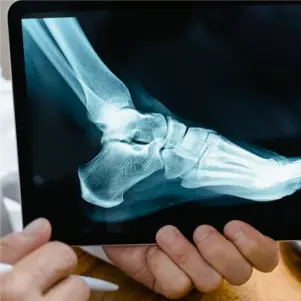Am I Eligible for Workers' Compensation?
"I was satisfied once John Bell took over my case."
"Communication was always timely."
Injuries on the job can impact more than just your physical wellbeing. Being eligible for workers’ compensation can help with medical bills that need to be paid. If you are put out of work due to an injury, those bills can be devastating. Knowing when you are covered in case of an accident can alleviate much of the stress on your mind and your wallet.

Factors for Eligibility
- Employment Status: To receive coverage, you must be an official employee of an employer that has qualified for workers’ compensation insurance. Independent contractors, volunteers, and other non-employee workers are generally not covered.
- Nature of Injury: The injury or illness must have occurred while performing work-related duties, including accidents, repetitive motion injuries, or occupational diseases.
- Timeframe: Injuries and work-related maladies must typically be reported to your employer within 90 days. After 90 days, you may no longer qualify for coverage.
- Employer’s Coverage: To receive coverage, your employer must have valid workers’ compensation insurance. You can verify this by asking your employer or checking the Oregon Department of Consumer and Business Services website.
- Types of Employment: Most employees are covered, but certain workers, such as sole proprietors, partners, and some volunteers, may have different eligibility requirements.
- Pre-existing Conditions: If a pre-existing condition is aggravated due to work (e.g., a previous back injury), you may still be eligible for compensation.
- Medical Treatment: Seek medical attention for your injury. A doctor’s evaluation may be needed to support your claim.
- Documentation: Keep detailed records of your injury, medical treatment, and communication with your employer.
If you’re unsure about your eligibility, consult your company’s HR department or an attorney. You can also check with the Workers Compensation Division for additional information.
Timeframe Exceptions To Your Eligibility For Workers' Compensation
While Oregon requires work-related injuries be reported within 90 days, there are exceptions:
- Occupational Diseases: If the injury is due to a work-related disease, the reporting period starts when you become aware of the disease and its relation to your work.
- Latent Injuries: Injuries that develop gradually (e.g., repetitive stress injuries) may allow reporting after symptoms appear.
- Psychological Injuries: For claims involving psychological conditions, the 90 days may start from the date you’re diagnosed or recognize the work-related nature.
- Employer Notification: If your employer knew about the injury and didn’t provide reporting procedures, the deadline may be extended.
- Medical Treatment Delay: If you were unable to report the injury due to immediate medical treatment, the reporting period may be extended.
- Minor Injuries: If you initially reported the injury as minor but later discovered it was severe, you may still qualify for coverage.
Consult your company’s HR department or an attorney for specific advice after the 90-day limit.
Contact Us
Knowing if you are eligible for workers’ compensation is essential for recovery. If you need help filing a claim or understanding your rights, contact us at 888-813-3188 for a free consultation.
Disclaimer: The information on this page is provided for general informational purposes only and is not legal advice. Reading this content does not create an attorney-client relationship. For advice about your specific situation, please contact a licensed attorney.







